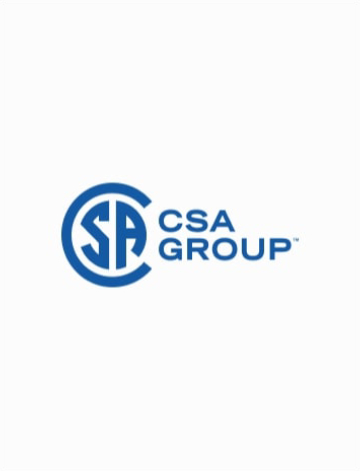Preface
This is the first edition of CSA C22.2 No. 301, Industrial electrical machinery, one of a series of Standards issued by CSA Group under Part II of the Canadian Electrical Code.
For general information on the Standards of the Canadian Electrical Code, Part II, see the Preface of CAN/CSA-C22.2 No. 0, General Requirements — Canadian Electrical Code, Part II.
This Standard is considered suitable for use for conformity assessment within the stated scope of the Standard.
This Standard was prepared by the Task Force on Industrial Electrical Machinery, under the jurisdiction of the Technical Committee on Industrial Products, and the Strategic Steering Committee on Requirements for Electrical Safety, and has been formally approved by the Technical Committee.
This Standard has been developed in compliance with Standards Council of Canada requirements for National Standards of Canada. It has been published as a National Standard of Canada by CSA Group.
Introduction
This Standard is intended to specify the applicable electrical requirements for industrial machinery needed to satisfy the electrical installation codes and practices for Canada. When third-party verified and appropriately marked as meeting the requirements of this Standard, the machinery is deemed compliant for installation in a non-hazardous location in accordance with the rules of the Canadian Electrical Code, Part I and to be acceptable to the electrical authority having jurisdiction. This Standard is intended to be used in conjunction with the Canadian Electrical Code, Part I where all mandatory installation requirements for Canada are specified.
Machinery can pose many other hazards in addition to electrical hazards. As such, users of this Standard need to be aware that Canadian federal, provincial, and territorial legislation can impose other additional requirements beyond those for electrical safety and that those requirements can vary from province to province. Some of this legislation is based on the requirements in CSA Z432 that specifies the conditions for the risk assessment, design, manufacture (including remanufacture and rebuilding), installation, maintenance, operation, and safeguarding of industrial equipment to prevent injuries and accidents and to enhance the safety of personnel who operate, assemble, and maintain the machinery. This Standard should be used in conjunction with CSA Z432 to also ensure compliance with any legislated non electrical aspects of machine safety.
This Standard was written to make the requirements align themselves as much as possible with existing global machinery requirements. Any unique requirements have been added only as necessary to ensure compliance with the requirements of the Canadian Electrical Code, Part I and to correlate with existing Canadian practices. This Standard was structured so that the requirements align as closely as possible to the requirements of the existing IEC 60204-1 standard on safety of machinery. This was done intentionally so as to facilitate a comparison of requirements between the two documents. The requirements of this Standard were also reviewed against those of the NFPA 79 to avoid any unintentional conflict in requirements and maintain to the greatest extent possible a commonality of requirements between this Standard and existing US requirements.
Scope
1.1
This Standard applies to industrial electrical machinery comprising interconnected mechanical, electrical, or electronic industrial equipment operating in a coordinated manner.
1.2
This Standard applies to equipment rated at not more than 1000 V intended to be installed and used in non-hazardous locations in accordance with the rules of the Canadian Electrical Code, Part I.
1.3
This Standard applies to equipment that is
a) permanently installed;
b) mobile;
c) relocatable; or
d) self powered.
1.4
The industrial equipment covered by this Standard is intended for use in an ambient temperature of 0 °C to 40 °C.
1.5
This Standard does not specify additional and special requirements that can apply to electrical equipment that
a) is intended for use in open air (i.e., outside buildings or other protective structures);
b) will use, process, or produce potentially explosive material (for example paint or sawdust);
c) is intended for use in potentially explosive and/or flammable atmospheres;
d) has special risks when producing or using certain materials; and
e) is intended for use in mines.
1.6
This Standard does not apply to portable equipment connected by a cord and plug and operated by hand as covered by CSA C22.2 No. 71.1.
1.7
This Standard does not apply to self-propelled work platforms.
1.8
This Standard does not specify additional and special requirements that can apply to electrical welding equipment within the scope of CSA C22.2 No. 60 or CSA/CAN E60974-1.
1.9
This Standard may be used to supplement but does not replace requirements that already exist in a published CSA component standard.
1.10
In this Standard, shall is used to express a requirement, i.e., a provision that the user is obliged to satisfy in order to comply with the Standard; should is used to express a recommendation or that which is advised but not required; and may is used to express an option or that which is permissible within the limits of the Standard.
Notes accompanying clauses do not include requirements or alternative requirements; the purpose of a note accompanying a clause is to separate from the text explanatory or informative material.
Notes to tables and figures are considered part of the table or figure and may be written as requirements.
Annexes are designated normative (mandatory) or informative (non-mandatory) to define their application.

